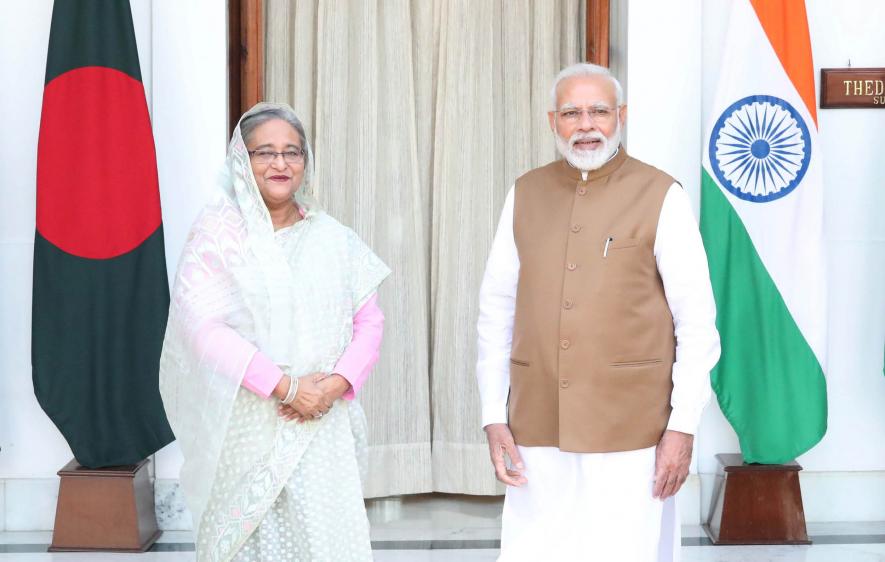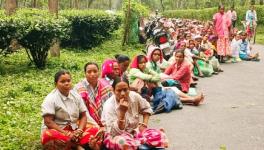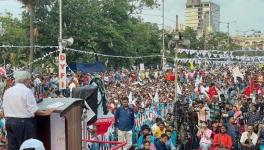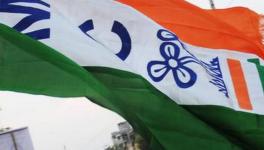NRC Looms Over Modi-Hasina Talks

Bangladesh Prime Minister Sheikh Hasina’s visit to India, by all accounts, is a success. A clutch of seven agreements were signed during the talks and the joint statement says that she and Prime Minister Narendra Modi recalled their “shared bonds of history, culture, language, secularism and other unique commonalities that characterize the partnership.”
Among the agreements signed is providing coastal surveillance systems to Bangladesh as a part of India’s maritime security. The two leaders also inaugurated three projects over video link. These are the bulk import of LPG from Bangladesh, Vivekananda Bhavan, a student hostel for the Ramakrishna Mission in Dhaka and a professional skill development project in Khulna.
Apart from this, Indian ships would now be able to use both Chattogram and Mongla ports in Bangladesh which would reduce congestion in the busy Chittagong port. This would certainly help in faster turnaround of ships carrying goods between India and Bangladesh and bring down transport costs.
But the elephant in the room is Assam’s National Register of Citizens (NRC). Behind the bonhomie and warm official statements of co-operation between the two Asian neighbours is a growing concern in Dhaka about the possibility of taking back people declared as ‘foreigners’ -- a euphemism for Bangladeshis -- back to the country. Dhaka is already reeling with the burden of providing for 7,50,000 stateless Rohingya refugees who fled Myanmar following riots two years ago. An already overpopulated country is in no position to take back more people from India.
The Indian government has assured Bangladesh that NRC is an internal issue. It is certain that Delhi has explained that the matter is not in the government’s jurisdiction, as the Supreme Court directed the Assam government to do so. But the apex court can at best ask the executive to find out who qualifies as a citizen. Once that is over, it is up to the government to deport them. That was part of the Assam Accord signed in 1985. This certainly involves Bangladesh.
Where will the “foreigners” be deported to? Or will they forever remain ‘nowhere’ people, much like the Rohingyas, with no one willing to take responsibility? According to government sources, Bangladesh has raised the issue of NRC and its fallout with India. India said, “Let the process be over.” This is a marked change from the time Sheikh Hasina was asked “not to worry”, when the two leaders had met at the sidelines of the United Nations General Assembly (UNGA) in New York. This nuanced shift in position points to a future where deportation may come up.
No doubt the visiting leader will once again raise the issue in her meeting on Saturday with the Indian PM. For, no one has a clue what Delhi will do with those hapless people who will be declared non-citizens after the Foreigners Tribunals completes the process.
Now, there is talk of having the NRC for the entire country. Poll-bound states, Haryana and Maharashtra, are talking about it. In West Bengal, where the Bhartiya Janata Party (BJP) is aiming to replace the Trinamool Congress, NRC is high on the agenda. The BJP leadership in Delhi is also publicly airing concerns about illegal migrants in the capital.
For India, illegal migrants from Bangladesh have always been a hot potato issue. The Asom Gana Parishad (AGP) came to power in Assam riding on a movement against the influx of ‘Bangladeshis’. From the initial days of the Assam agitation, the students had the support of the BJP. Leaders such as Atal Bihari Vajpayee, LK Advani and Jaswant Singh would often visit Assam in the early 1980s to back the movement. During the 2014 and 2019 national elections, the BJP-AGP combine had publicly spoken of throwing out illegal Bangladeshis from the state. That was a promise that helped the BJP’s climb to power. In the Assembly elections, too, the BJP-AGP swept the polls and opened the flood gates for the party in the Northeast. All through the election campaigns high-pitched voices were raised against Bangladeshi foreigners.
Yet, Dhaka kept out of the debate and did not protest. Bangladesh has always maintained that they are ready to take back all those who can prove they are from that country. Considering that the majority are poor, illiterate peasants, they have no documents to prove either their Indian or Bangladeshi citizens. Successive governments in Bangladesh have maintained there are no illegal Bangladeshis in India.
Hasina is a friend of India. She is the longest-serving PM of Bangladesh, having completed three successive terms since 2008. That year marked a turning point In India-Bangladesh ties. One of her first acts was to hand over the leaders of United Liberation Front of Asom (ULFA), a militant separatist group, that had previously operated from Bangladesh. Since then, the already friendly ties with the Awami League government have become an example of good-neighbourly relations. Modi’s BJP government has continued to promote and nurture these ties. In fact, leaving aside Bhutan, Bangladesh is one of India’s closest friends in the neighbourhood.
Yet now, with the NRC becoming a major issue, India-Bangladesh ties can take a hit. The Modi government has a problem at hand. And, it is giving no hint on how it plans to deal with the Muslim Bengali-speaking immigrants, who will be declared foreigners by the Foreigners Tribunals. The sad truth is that it is only these people who will be affected.
The Amendment to the Foreigner’s Act which the BJP government will pass through Parliament will ensure that Bengali Hindu refugees from Bangladesh, Sikhs from Afghanistan, Hindus from Pakistan, as well as persecuted Christians and Parsis, will all be eligible for Indian Citizenship. Only Muslims are left out.
Assam and other Northeastern states are not happy over the amendment Bill and want Hindu refugees out of the region. However, the BJP has been adamant that Hindu refugees, whenever they may have entered the country, will be given Indian citizenship. Others oppose the amendments on the grounds that citizenship in India was never given on religious basis.
However, it is likely that the BJP will succeed in pushing through the amendment Bill soon. The BJP would want it cleared before the West Bengal election, where it is playing the Hindu card and talking about state Chief Minister Mamata Banerjee not only batting for Muslims but also encouraging illegal migrants from Bangladesh.
For now, Bangladesh is not raising the issue of deportation publicly in India. Hasina is possibly giving India the benefit of doubt and waiting to see what finally happens. Any move by Delhi to deport people to Bangladesh a year or two down the line would spell doom for India-Bangladesh friendship.
The Awami League has always been charged by the Opposition Bangladesh National Party and the Jamaat as pro-India. If in the end Dhaka must take in deportees from India, it would be politically disastrous for the Awami League. Sheikh Hasina has already taken the blow of India going back on the Teesta water agreement, thanks mainly to Mamata Banerjee’s refusal to back it.
Since Modi’s stunning election victory this year, the government seems bent on promoting the BJP’s long-held ideological beliefs. The scrapping of Article 370 in Kashmir, the triple talaq Bill in the name of protecting the rights of Muslim women, as well as the move to amend citizenship laws, are all in line. Deporting foreign nationals is also part of the nationalism narrative. Will it do so despite all assurances now being given to Bangladesh remains to be seen. In short, the world will see a very different India taking shape and human rights will become a major talking point in Western capitals. Will Indian diplomacy be able to handle this fallout?
Seema Guha is an independent journalist who has been covering foreign policy and the North East for decades. The views are personal.
Get the latest reports & analysis with people's perspective on Protests, movements & deep analytical videos, discussions of the current affairs in your Telegram app. Subscribe to NewsClick's Telegram channel & get Real-Time updates on stories, as they get published on our website.
























